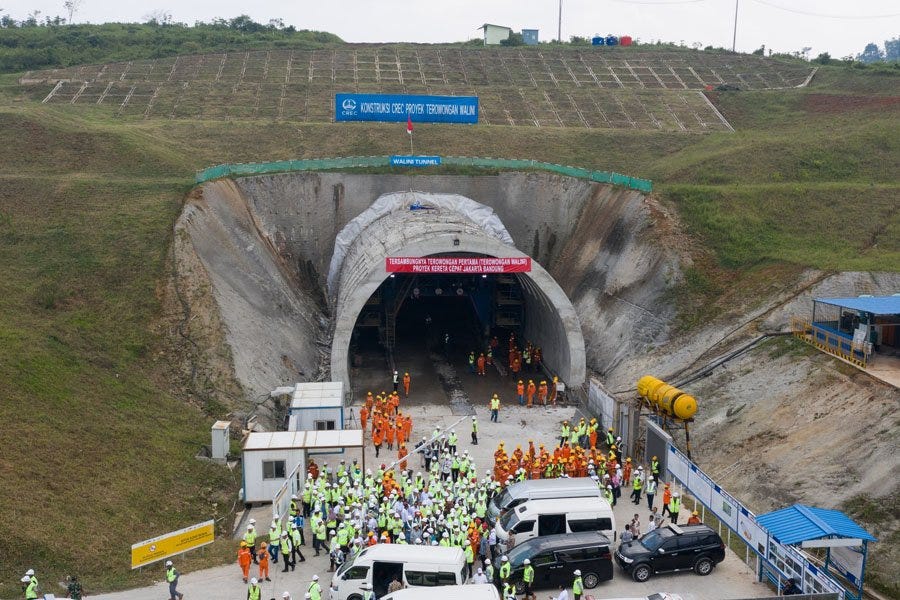Costs Zoom for Indonesia's Delayed High-Speed Train
Project faces delays, cost overruns, state bailout looms
Work on Indonesia’s 140-km high-speed Jakarta-Bandung rail project, which China beat out Japan to build, is now three years behind projected completion, with the cost having ballooned by nearly 20 percent from US$6.07 billion to US$8 billion and with a state bailout now looming.
The Indonesian government will likely be forced to disburse trillions of rup…
Keep reading with a 7-day free trial
Subscribe to Asia Sentinel to keep reading this post and get 7 days of free access to the full post archives.

